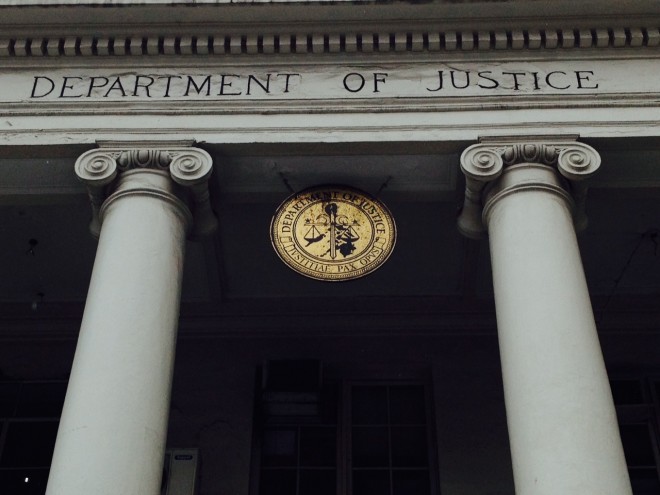The Department of Justice (DOJ) has expressed support to the proposal to increase the prescriptive period in prosecuting public officials for graft.
In a one-page legal opinion made public Wednesday, the DOJ said it has no objection to the consolidated House Bill No. 4146 and Senate Bill No. 2422 that both seek to increase the prescriptive period for violations of Republic Act 3019 (Anti-Graft and Corrupt Practices Act) from 15 years to 20 years.
The bills specifically seek to amend Section 11 of the law and expand the prescriptive period or the period within which a complaint for violation of R.A. 3019 can be filed counting from the date of commission of the alleged act.
“It must be emphasized that the 1987 Constitution explicitly states that the state shall ‘take positive and effective measures against graft and corruption.’ [W]e fully support the passage of the aforestated enrolled bill into law.”
“This department finds no legal objection to the passage of the consolidated enrolled bill since after a careful review and evaluation of the text of the same shows that there is nothing in the said bill that is inconsistent with the Constitution or other pertinent laws,” read the opinion signed by Justice Undersecretary Zabedin Azis.
The DOJ noted that it has actively participated in the deliberations on the proposed bills.
Authors of the consolidated measure believed that by extending the period upon which to initiate legal action would prevent erring officials from escaping liability on technicality.
The authors, in their explanatory note, said graft and corruption is a not merely a problem confined in Philippine borders but is a “worldwide malaise.” They stressed that cases involving alleged graft and corrupt practices are one of the “most difficult” to investigate and prosecute and entail a considerable amount of time for case build-up.
Graft and corruption, according to President Rodrigo Duterte, is one of the reasons why the public has no longer trust in the government.
READ: Duterte vows to fortify Filipinos’ faith in gov’t
If enacted, it would be the second extension of the prescriptive period of R.A. 3019.
When the anti-graft law was enacted in August 1960, the original prescriptive period was 10 years. It was amended in 1982 by virtue of Batas Pambansa Bilang 195 that extended the prescriptive period to 15 years. RAM
